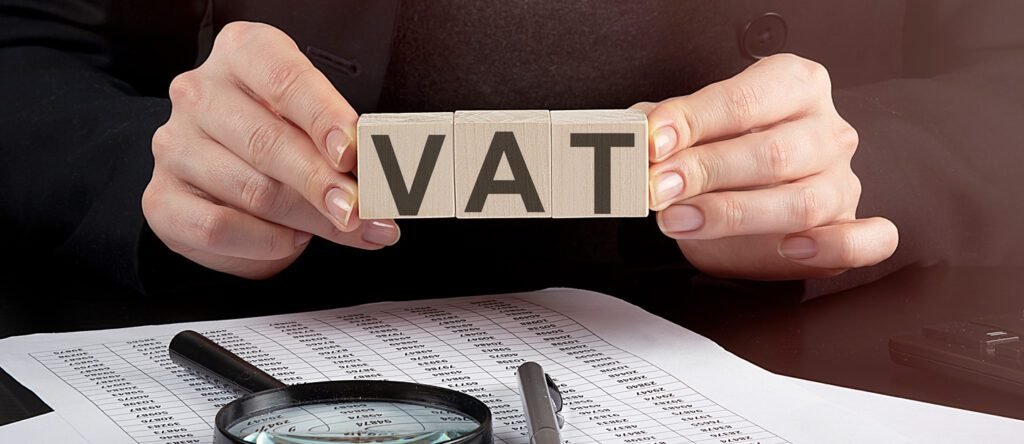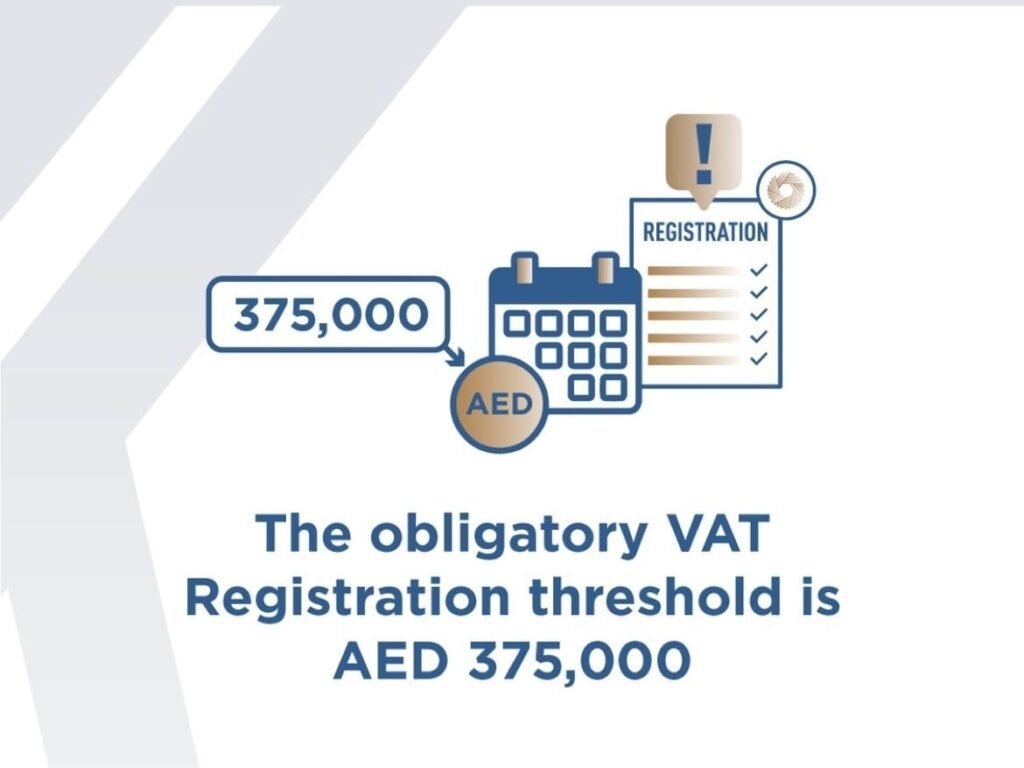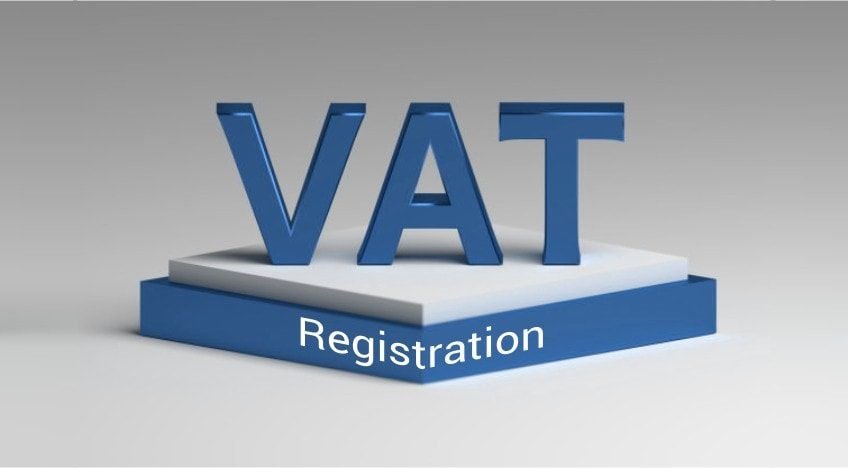
Table of Contents
Related Articles


Bank Account Opening for Russian Nationality in UAE

Why External Audits Matter for Free Zone Businesses

Let's Talk
Sign Up For Free Consultation
Answering Frequently Asked Questions About VAT Threshold UAE

The United Arab Emirates (UAE) has become one of the world’s booming business hubs and a highly sought-after destination for international investment. The UAE introduced Value Added Tax (VAT) on January 1, 2018, to diversify its economy.
If you own a business in the UAE or are planning to establish one, it’s crucial to thoroughly understand the VAT registration process and requirements to ensure your business complies with VAT regulations. If you’re unsure about how this works or what is required, this blog will address many common questions about VAT registration and threshold in the UAE.
1. What is Value Added Tax (VAT) in the UAE?

Value Added Tax (VAT) in the UAE is a consumption tax imposed on most goods and services. It was introduced on January 1, 2018, as a part of the UAE government’s strategy to diversify the economy and reduce dependence on oil revenue.
The standard rate of VAT in the UAE is 5%, applied at each stage of the supply chain. Businesses collect VAT on behalf of the government and remit the amount, while the end consumer ultimately bears the tax burden.
2. What is the Purpose of Imposing VAT?
The primary purpose of UAE VAT is to diversify the government’s revenue sources. By implementing VAT, the UAE aims to reduce its dependency on oil revenues and create a stable and sustainable income stream. The collected VAT is used to fund various public services and infrastructure projects, enhancing the overall quality of life and economic stability in the country.
3. VAT Registration Threshold in the UAE

Businesses in the UAE must register for VAT if their annual taxable supplies and imports exceed the mandatory registration threshold of AED 375,000. There is also an option for voluntary VAT registration for businesses with annual Taxable expenses, supplies, and imports between the voluntary registration threshold of AED 187,500 and AED 375,000.
Voluntarily registering for VAT can be beneficial for small businesses as it allows them to reclaim any VAT incurred during their operations, enhancing credibility and operational efficiency.
4. How Does VAT Work?
VAT in the UAE operates on a multi-stage process, where tax is collected at each point of the supply chain. Businesses charge VAT on their sales and can reclaim the VAT they have paid on their purchases.
This ensures that the tax is only levied on the value added at each stage, ultimately borne by the end consumer. For example, a manufacturer charges VAT on their sales to a wholesaler, who then charges VAT on sales to a retailer, and finally, the retailer charges VAT to the consumer.
5. Documents Required for VAT Registration in the UAE

To register for VAT in the UAE, businesses need to provide several documents, including:
Trade license
Passport copies of the owner/partners
Emirates ID copies
Proof of business establishment (such as lease agreements)
Bank account details
Financial statements (if available)
These documents are submitted through the Federal Tax Authority (FTA) portal during the voluntary and mandatory VAT registration process.
6. What is a Taxable Supply?
A taxable supply refers to any supply of goods or services made in the UAE that is subject to VAT. This includes both sales and deemed supplies (such as self-supplies). Taxable supplies can fall under three categories:
Standard-Rated Supplies: These are supplies subject to the standard VAT rate of 5%. Most goods and services in the UAE fall under this category.
Zero-Rated Supplies: These are supplies taxable at a 0% rate, meaning VAT is charged at 0%, but businesses can still reclaim any input tax incurred. Examples include exports of goods and services, certain educational services, etc.
7. What is the Difference Between Zero-Rated Supplies and Exempt Supplies?
Zero-rated supplies are taxable at a 0% VAT rate, meaning businesses can claim back any input VAT they have paid. These include certain education and healthcare services, exports, and specific precious metals. Exempt supplies, on the other hand, are not subject to VAT, and businesses cannot claim back any input VAT. Examples include residential real estate, public transport, and certain financial services.
8. What are VAT Rates in the UAE?

The standard VAT rate in the UAE is 5%. However, there are categories where different rates apply:
Zero-rated supplies: 0% VAT (e.g., specific healthcare and education services, exports)
Exempt supplies: No VAT (e.g., residential properties, public transport, certain financial services)
Standard-rated supplies: 5% VAT (most goods and services).
9. What Sectors are VAT Exempt?
Under the UAE VAT legislation, the following sectors are exempt from VAT registration:
Residential properties (subsequent sales or rentals)
Bare land
Domestic passenger transportation
Life insurance
Certain financial services (e.g., interest on loans).
10. Does VAT Apply to Tourists?
Yes, VAT applies to tourists when they purchase goods and services in the UAE. However, tourists can reclaim VAT on goods purchased from participating retailers if they meet certain conditions, such as exporting the goods out of the UAE within 90 days from the date of supply. The VAT refund scheme for tourists is administered by the Federal Tax Authority (FTA).
11. How to Register for VAT?

UAE VAT registration goes through the Federal Tax Authority (FTA) portal. The process involves creating an account, submitting the required documents, and completing the registration form. Once approved, the business receives a Tax Registration Number (TRN) and registration certificate, which is used for all VAT-related transactions and filings.
12. When Should VAT Returns Be Filed?
Registered businesses that meet the UAE VAT registration threshold must file VAT returns every quarter. The return must be submitted by the 28th day of the month following the end of the tax period. The return should detail all taxable transactions, VAT collected, and VAT paid during the taxable period.
13. What is the Reverse Charge Mechanism for VAT?

The Reverse Charge Mechanism (RCM) allows businesses to account for VAT on imported goods and services as if they had supplied them themselves.
This means the buyer records both the input tax (as if they had paid VAT) and the output VAT (as if they had collected VAT) on the same transaction, effectively offsetting the two amounts. This mechanism helps to prevent VAT from being applied twice on cross-border transactions.
14. What is the Penalty for Evading VAT?
Penalties for evading VAT in the UAE are severe and can include fines up to three times the amount of tax evaded. Other penalties for non-compliance, such as failing to issue a tax invoice or notify the FTA about tax changes, range from AED 2,500 to AED 15,000, depending on the offense.
15. Can You Still Operate in UAE Without Having TRN?
No, businesses that meet the VAT registration threshold must have a Tax Registration Number (TRN) to operate legally in the UAE. Operating without a TRN can result in substantial fines and penalties, and businesses may also face difficulties in conducting transactions as VAT compliance is a legal requirement.
16. How Much Time Does It Take to Receive TRN?
The time it takes to receive a Tax Registration Number (TRN) can vary, but it generally takes about 20 business days from the date of application submission. The process includes verification of submitted documents and approval by the Federal Tax Authority (FTA).
17. VAT Registration as a Tax Group in the UAEe Filed?
Businesses in the UAE can register as a tax group, allowing multiple entities to be treated as a single taxable entity. To qualify, all members must be legal persons with a place of establishment in the UAE, and they must be related parties under common control.
The representative member must have a Tax Registration Number (TRN). The Federal Tax Authority (FTA) assesses the VAT registration application and typically issues decisions within 20 business days.
Tulpar Global Taxation VAT Registration Services

At Tulpar Global Taxation, we offer comprehensive VAT registration services in the UAE to help you navigate the complexities of tax compliance. Our services include:
Eligibility Assessment: We assess whether your business needs to register for VAT based on your activities and revenue. This ensures you understand your obligations under UAE law.
Documentation Preparation: We assist you in gathering and organizing all necessary documents required for VAT registration. This includes business licenses, financial records, and identification documents.
Application Submission: We handle the preparation and submission of your VAT registration application to the Federal Tax Authority (FTA). Our team ensures that all information is accurate and compliant with regulations.
Follow-Up and Communication: We manage all communications with the FTA on your behalf, addressing any inquiries and keeping you updated on the progress of your application.
Ongoing Compliance Guidance: Once registered, we provide continuous support to ensure you maintain compliance with VAT regulations. This includes advice on record-keeping, filing returns, and managing VAT payments.
Our goal is to simplify the VAT registration process for you, allowing you to focus on your business operations while ensuring you meet all legal requirements in the UAE
Contact Us:
- Website: www.tulpartax.com
- Email: info@tulpartax.com
- Phone: +971-54 444 5124